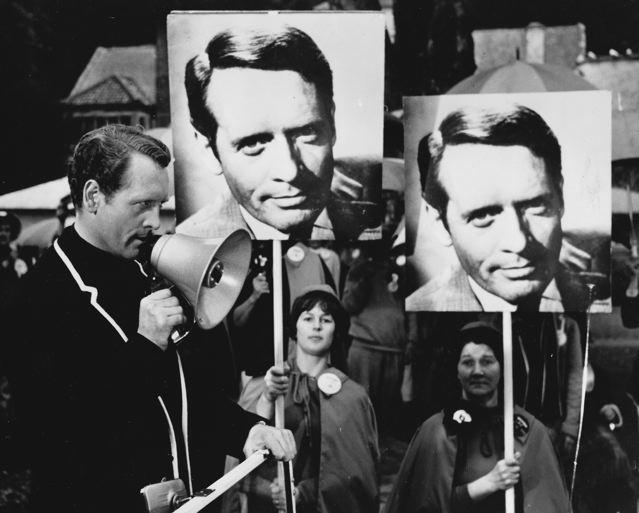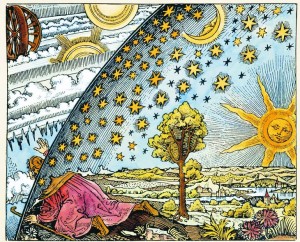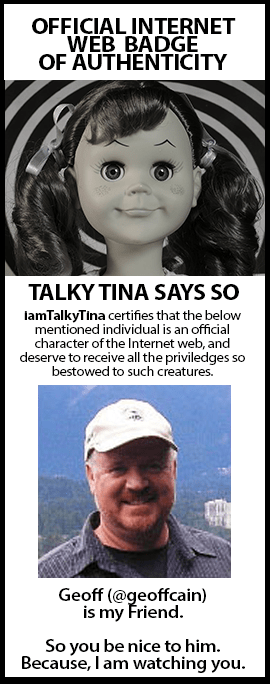 This week we are focusing on three episodes: “The Arrival,” “Free for All,” and “Dance of the Dead.” I love the episode “The Arrival” – I think McGoohan’s performance is electric: he is manic, brutal, pacing back and forth in his “cage” like a wild animal. And when he is calmer he falls into this menacing cynical attitude and that eccentric vocal delivery of his. I am paying particular attention to the use of technology is this round of viewing (my fourth or fifth). Technology is certainly not a neutral force in this series. Technology is used for control and to limit. It is used to monitor, track and observe. I think it represents power in this series so it is import to watch who has access to technology and who doesn’t. It is useful to compare the dystopian attitude to technology in The Prisoner to the utopian attitude in Star Trek. Star Trek sees a world where all the problems have been solved by technology: medicine, economics, and world peace. The world of The Prisoner sees technology as something more sinister: ubiquitous observation through closed-circuit television, media as a two-way proposition (the television and radio is monitoring the users, much like Facebook), and Rover (the drones of The Village?) manage and corral the population. Technology is also used in the hospital for brainwashing and torture. I think the implication being that the more we separate ourselves, or distance ourselves from one another using technology as an agent, the easier it is for ethical relations (medical ethics) to evaporate. This is particularly apparent in “Dance of the Dead” where a doctor is using technology to torture No. 6.
This week we are focusing on three episodes: “The Arrival,” “Free for All,” and “Dance of the Dead.” I love the episode “The Arrival” – I think McGoohan’s performance is electric: he is manic, brutal, pacing back and forth in his “cage” like a wild animal. And when he is calmer he falls into this menacing cynical attitude and that eccentric vocal delivery of his. I am paying particular attention to the use of technology is this round of viewing (my fourth or fifth). Technology is certainly not a neutral force in this series. Technology is used for control and to limit. It is used to monitor, track and observe. I think it represents power in this series so it is import to watch who has access to technology and who doesn’t. It is useful to compare the dystopian attitude to technology in The Prisoner to the utopian attitude in Star Trek. Star Trek sees a world where all the problems have been solved by technology: medicine, economics, and world peace. The world of The Prisoner sees technology as something more sinister: ubiquitous observation through closed-circuit television, media as a two-way proposition (the television and radio is monitoring the users, much like Facebook), and Rover (the drones of The Village?) manage and corral the population. Technology is also used in the hospital for brainwashing and torture. I think the implication being that the more we separate ourselves, or distance ourselves from one another using technology as an agent, the easier it is for ethical relations (medical ethics) to evaporate. This is particularly apparent in “Dance of the Dead” where a doctor is using technology to torture No. 6.
The episode “Free for All” is interesting because it is one that seems completely dedicated to press and politics. I think it is important because the questions of cooperation and complicity pop up throughout the series. No. 6 seems to subversive intentions by agreeing to run for office against No. 2, but all of that is thwarted by the sheepish behavior of the crowd and undone by the press only willing to report what they want to hear. I read in “The Official Prisoner Companion: The Only Guide to the Most Original and Innovative TV series of All Time” by White & Ali* that this was McGoohan’s favorite episode and reflected his personal politics. A popular essay that I have seen reproduced in underground newspapers and radical publications (radical used to be a good word) was Sartre’s “Elections: a trap for fools” where Sartre talks about the limiting nature of a democracy that you are “allowed” to have. We have choices but who decides what those choices are?
In “Dance of the Dead” the transistor radio is a piece of technology that connects him to the outside world. I like that it is never really clear what is being said on that radio. There is a faint sentence towards that can be made out just before he turns it off where one can hear: “Only through pain can tomorrow be ensured.” (Note: In the 60s, everyone I knew had a little radio or pocket transistor AM/FM with a monophonic earphone. It was not as common as cell phone are now but quite common.)
I am also interested in propaganda and how easily we are brainwashed by even the most inane mottos. I will be doing a post on the signage in the village later.
I am paying attention to the sounds that technology makes in The Prisoner to see what cues and leitmotifs might be arising in those however brief bits when we are confronted with automation (doors, interactive maps, etc.).
Someone did a freeze frame on the interactive map and found that it contains no 7’s!
I have been watching the episodes with my wife who is younger than I and has very little patience with some of the more “far out” aspects of 60s culture. The surrealism/expressionist tropes: the midgets, clowns, and lava lamps of “The Prisoner” and other shows like “The Avengers” seems to annoy her. “Reality” for her generation is never in quotation marks and is less fluid than it was in the 60s. (Despite how much it sparkled in the 70s!)
*This book has been on my shelves for years!






I am sort of in the same place as your wife – but maybe an edge closer. I want to like the 60’s psychedelic aura – I was the age of wanting to be cool, but not knowing what it was and it is a little strange now. I did however like the Avengers- I thought Mrs. Peel was cool – but more so for being a strong smart woman than someone who looked good in boots.
As I watch the episodes, I am getting more into it. Does seem to be an early version of Twin Peaks, X Files, or other later shows in its strangeness. It just needs a good drinking game and might work….
I appreciate your review and analysis it is very helpful and well though out.
Great post, Geoff!
I learnt a lot from reading it. I had the discomfort of ‘elections as a trap for fools’ but not the words to describe it. I will read the essay you mention. Looking forward to your focus on technology and the juxtaposition of light/shade with Star Trek and The Prisoner.
I am focussing on the signs and fonts this time around – I discovered a new sign on this latest viewing: Walk on the grass, which I took as yet another way subvert expectation and make ‘residents’ uncertain about ‘them’ and who they are.
I was one of those people who watched this mesmerised and terrified at the same time. I was too young to understand but not too young not to be scared by the implications embodied in the tension between the individual and the collective. Also now as a psychologist loving the ‘we have seen the enemy and it is us’ subtext in the whole series including (hoping to be vague enough not to spoil it for anyone) that final No1 discovery at the end…